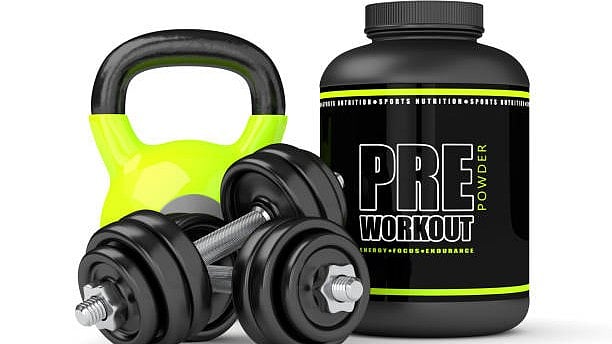
Image for representational purposes.
Credit: iStock Photo
Walk into any gym in India today, and you’ll likely spot rows of shaker bottles filled with brightly coloured pre-workout drinks. These supplements, marketed as magic formulas for instant energy, intense focus, and superhuman endurance, have become a staple among fitness enthusiasts, especially the younger crowd. But behind the flashy packaging and social media hype lies a growing health concern: your pre-workout drink could be silently damaging your heart.
What’s inside a pre-workout?
Pre-workout supplements typically contain a blend of caffeine, creatine, beta-alanine, amino acids, and various “proprietary blends”, a term that often conceals the exact ingredients. While some of these compounds do have scientific support for enhancing performance, the issue lies in how they’re mixed, the dosages used, and the lack of quality control.
In India, many of these products are imported or purchased online without clearance from the Food Safety and Standards Authority of India (FSSAI). As a result, users often don’t know exactly what they’re consuming or how these substances might affect their bodies, especially the heart.
How supplements affect your heart?
Many young and active individuals seem healthy until they arrive at the hospital complaining of palpitations, dizziness, high blood pressure, or irregular heartbeats. Upon closer examination, a common factor often emerges: frequent use of high-stimulant pre-workout supplements.
Caffeine is a well-known stimulant, and while small amounts are generally safe, pre-workouts often pack two to three times the caffeine of a strong cup of coffee, taken in a single gulp, right before intense physical activity. This can cause a rapid spike in heart rate and blood pressure, especially when combined with exercise, dehydration, or heat. Some formulations even include ingredients like synephrine or yohimbine — powerful stimulants that narrow blood vessels and increase cardiovascular strain. These are often unlisted or vaguely labelled, leaving users unaware of the risks.
Warning signs you shouldn’t ignore
If you notice any of the following after taking a pre-workout supplement, stop immediately and consult a doctor:
Rapid or irregular heartbeat
Chest discomfort
Shortness of breath
Dizziness or fainting
Unusual fatigue
Headaches
Sudden sweating
These aren’t just gym-related symptoms — they could signal a serious underlying issue.
Safer alternatives for lasting energy
If you’re looking to fuel your workouts safely, consider these healthier options:
Stay hydrated with water or electrolyte-rich drinks.
Eat a light snack (like a banana, dates, or whole-grain toast) 30–45 minutes before exercise.
Get enough sleep — rest directly impacts performance and recovery.
Warm up properly to prevent injury and gradually increase intensity.
Most importantly, listen to your body. If you’re exhausted, rest instead of reaching for stimulants.
Your heart deserves protection
Fitness should be a lifelong journey, not a sprint. While high-stimulant pre-workouts may offer short-term gains, they can slowly erode your most vital organ.
If you’re serious about your fitness, consult a doctor or certified sports nutritionist before starting any supplement, as true strength comes from consistency, not shortcuts.
(The author is the regional clinical director & senior interventional cardiologist of a chain of hospitals based in Hyderabad.)